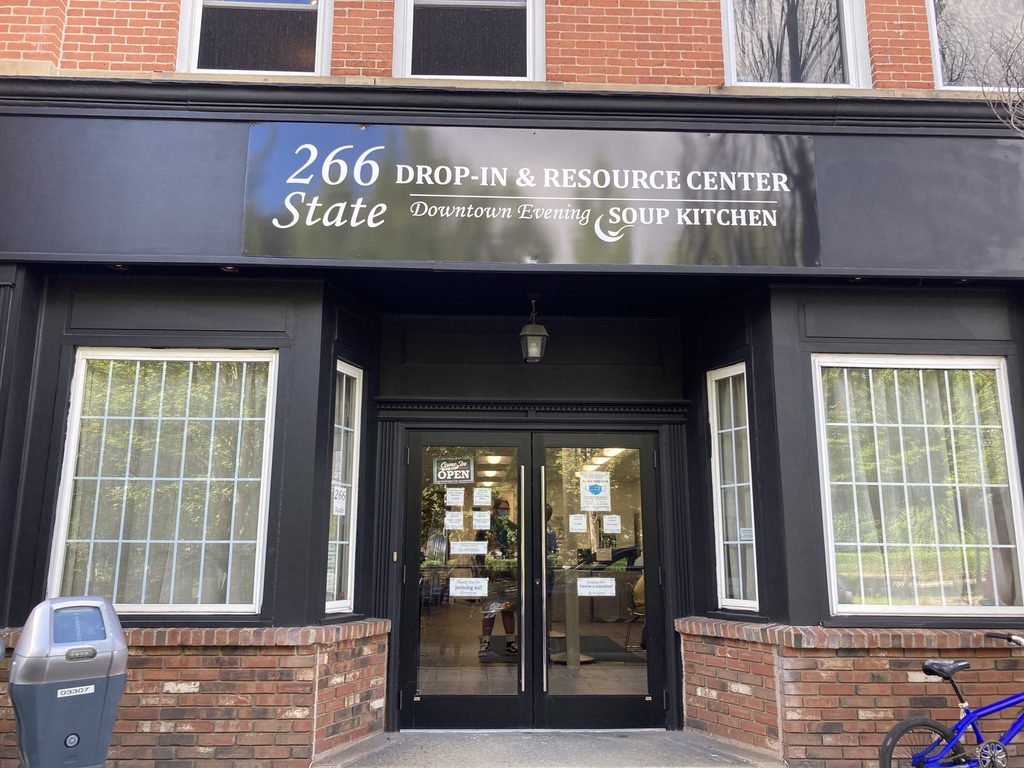Homeless service providers sound alarm on ‘critically underfunded’ response system
Providers requested $50 million but only received $5 million, all of which the state allocated toward cold weather funding.

Yale Daily News
Homeless service providers requested $50 million from Connecticut last February to maintain the state’s homeless response system but only got $5 million — plus $2 million of “flex” spending — in September.
Now, providers are adapting their cold weather plans for shelters and warming centers ahead of winter.
The proposed $50 million would have included funding for staff to receive raises and updates to the 211 emergency response system. All of the approved $5 million is for emergency cold weather services. Service providers have raised concerns about a response system with aging infrastructure and staffing shortages due to what they say is a lack of state support.
“We have a homeless response system that is critically underfunded,” Sarah Fox, CEO of the Connecticut Coalition to End Homelessness, said. “We need our system to be actually operational and working to meet the needs of Connecticut’s residents today, so that no one dies this winter.”
On Sept. 25, the Connecticut Department of Housing distributed the $5 million throughout the state’s coordinated access network, which connects regional homeless service providers. The Greater New Haven Coordinated Access Network, which includes 19 municipalities, received $1.16 million.
Kelly Fitzgerald, director of New Haven’s coordinated access network, said that she believes the $1.16 million from the state, coupled with additional funds from the city of New Haven and the town of Hamden, puts the greater New Haven area in a “good place” with cold weather funding.
Cold weather funding, Fitzgerald told the News, pays for emergency services to protect unhoused people from extreme weather. One example of emergency winter services is warming centers, where unhoused people can take temporary overnight shelter.
Last year, Hamden contributed $100,000 toward the Hamden warming center, according to Fitzgerald. Velma George, New Haven’s homeless coordinator, wrote to the News that the city was still working to “fine tune” its cold weather plans.
“We are confident that we will have enough resources to support the unsheltered need this cold weather season,” Fitzgerald said. “I know that’s not necessarily the case in every region.”
After the pandemic, the rate of homelessness in Connecticut rose for the first time in eight years — increasing by 13 percent in 2022 and 3 percent in 2023.
On Oct. 1, a new Connecticut law declared homelessness a public health crisis.
Last legislative session, the Connecticut House of Representatives housing committee voted unanimously to approve the initial $50 million proposal to support homeless service providers. The bill was scaled back by the Appropriations Committee, which ultimately granted only a small portion of the request — the $5 million toward cold weather funding. The committee also approved $2 million in “flex funds” for homelessness services and the 211 system.
Rep. Geoff Luxenberg, who chairs the housing committee, attributed the funding cut from the proposed $50 million to the approved $5 million to a lack of available funds in the state budget.
Connecticut ended the 2023 fiscal year with a $745 million budget surplus.
“I, too, had some misgivings about it only ending up at five million, but I was glad we got five as opposed to zero,” Luxenberg told the News.
According to Fox, state funding for the homeless response system has not kept pace with inflation or the increase in minimum wage. Fox added that the majority of the nonprofit providers the coordinated access network works with need to privately fundraise around 50 percent of their costs.
Luxenberg also highlighted the difficulty of staffing warming centers, saying that it is difficult to hire people to work overnight for relatively low pay at a temporary job that ends in the spring.
“There are some real structural flaws with how we address taking care of the people in our state who are most in need of support. And we end up paying through the nose,” Luxenberg said.
Steve Werlin, the director of Downtown Evening Soup Kitchen, said that volatile weather and an unpredictable economy make it difficult to accurately forecast the demand for homeless services this winter.
DESK operated a warming center last year, but is closing overnight programming this winter to complete renovations.
“Last winter [New Haven was] maxed out at pretty much all of our overflow spaces and our warming centers,” Werlin said. “We were routinely going over capacity last winter. As an indicator of the following winter, it’s frightening.”
Emergency cold weather services are only one prong of New Haven’s response to homelessness. Homeless service providers told the News they must also contend with a limited supply of shelter beds and a lack of affordable housing.
The city faced a shortage of shelter beds last winter, with dozens of families and individuals being stuck on waiting lists hoping for one of the city’s 175 beds.
Last week, the Board of Alders approved the city’s $9.6 million plan to buy the Day’s Inn Hotel on Foxon Boulevard and convert the space into non-congregate shelter housing. Once opened, the shelter will increase the city’s shelter capacity by 56 rooms, which will house over 100 individuals.
“At the end of the day, cold weather [services are] an emergency band-aid to really make sure we have some place for people to stay alive during cold weather,” Fitzgerald said. “Our ultimate goal is to have enough year-round beds to meet the need, and the hotel would help us move in that direction.”
According to Fitzgerald, there are currently around 600 unhoused people in the greater New Haven area identified on the by-name list — a list of people experiencing homelessness that is continually updated. Of the 600 individuals, Fitzgerald said that there are around 250 people who are “literally homeless” — sleeping outside — on an average night.
According to Connectiuct’s 2023 Point in Time count, there were 3,015 people experiencing homelessness in Connecticut last January.







